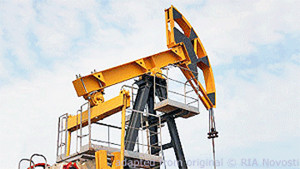Russia Shifts Focus From Oil To Agriculture

(Oilprice.com – Michael McDonald – October 13, 2016)
Michael MaDonald is an assistant professor of finance and a frequent consultant to companies regarding capital structure decisions and investments.
Russia’s biggest industry has been oil production historically, but the country appears to be trying to diversify that by putting more emphasis on agriculture. The former soviet state has been relying on the same tractors and silos for decades due to the apparent lack of opportunity for growth before 2013. With Russia’s increased production of wheat, farmers need to find alternative means of storage. As of this year, Russia has officially surpassed the United States in the exportation of wheat.
Even though Russia has pulled ahead of the United States for wheat exports, the country’s farms are still years behind in regard to equipment. Equipment providers will see an abundance of business from the Russians over the next several years. However, these products aren’t cheap. Andrey Burdin is a farm operator near the Black Sea and maintains over 4,200 acres. He hopes to invest in a plant sprayer from Deere & Co., which can fetch upwards of $311,000. The devaluation of the ruble along with government subsidies has proven beneficial to farmers and potentially made agriculture more attractive than crude.
Olam International Ltd is one of the largest exporters of grains from Russia. The firm is becoming increasingly interesting as they invest in more export terminals in the region, like their elevation facility at a port in Azov, on the Black Sea. These types of assets will be extremely useful to companies like Olam as Russia continues to export wheat. Investors should be on the watch for companies like this, heavily interested in the transportation of grains. AFK Sistema, a Russian conglomerate, acquired an agricultural complex in Yuzhny last year. This combined with their portfolio diversified across nearly every sector shows prospects for profit.
This is quite an accomplishment for Russia since they only reentered the wheat market in 2002, having quit in the late 90’s after the collapse of collective farming. Putin restated last December that his goal for Russia is to be 100 percent self-sufficient on food by 2020. But with attention shifting to farming, what does this mean for big oil?
Unfortunately, oil is beginning its decline in Russia. The nation is being faced with the issue of how to maintain the current level of crude production, something impossible without upgrading equipment. The soviet-age oil fields have peaked and will soon be unable to produce effectively.
With the market being inundated by supply, OPEC is taking precautions to freeze output. This likely won’t be an issue for Russia seeing as they haven’t found any new sources to replace their parched fields. Russia has such little upside potential it makes sense they came to the table with OPEC on this topic. Low oil prices make exploration difficult and exports provide less of an income. One option is the arctic but even big oil companies struggle with high operational costs. The country is losing faith in big oil. Putin and other top officials now believe farming is the way of the future. Soon the workers who have been on these rigs for years will shift over to the farming industry. Manufacturers of equipment for oil production are going to start looking for ways to help create the products used to grow and gather wheat.
If these firms are unable to find the methods to uphold output levels then companies may be in trouble. Rosneft, Russia’s state-owned oil company, is forecasted to lower output by the end of the year. Investors should also watch production statistics for Bashneft, Lukoil, and Gazprom, several other large producers in Russia.
[featured image is file photo]
